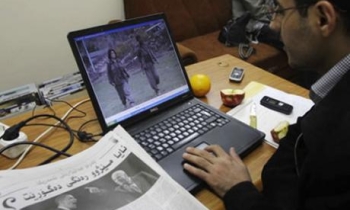LUSAKA, 20 Jan 2006 (IRIN) - The Zambian media has largely ignored the drought that has left more than a million rural Zambians in need of food aid.
Despite President Levy Mwanawasa's declaration of a national food crisis last year, when harvests failed in parts of southern, eastern and northern Zambia, the national broadcaster, the Zambia National Broadcasting Corporation (ZNBC), has not carried any reports on the drought or the starvation it has caused.
Jo Woods, the spokeswoman for the UN's World Food Programme (WFP) in Zambia, described the food crisis as "very serious, and indications are that a minimum of 1.4 million people will require food assistance through to the next harvest in 2006 ... we are not in the leanest period yet, but many people are struggling to make ends meet".
While millions of Zambians are threatened with starvation, the country's media have continued to give prominence to stories featuring politicians insulting each other in the coming crucial presidential and parliamentary elections, to be held in the next six months.
Ben Kangwa, ZNBC's director of programmes, said the state broadcaster lacked the resources to cover the crisis.
"We definitely should be doing more on the poverty story, but we have serious logistical and funding problems at ZNBC that limits the way we cover issues," Kangwa told IRIN, "At our Lusaka office [in the capital], for example, we only have two cameras and yet we need 15 ... clearly that shows you that even if we wanted to cover the food crisis story, we cannot do it as effectively as CNN or agencies, but we will try our best and stretch the few facilities we have."
The drought-affected area farthest from Lusaka - the outskirts of the town of Livingstone in the south - is only about 550 km away.
Questioning the broadcaster's excuse of limited resources, Kellys Kaunda, chairman of the media watchdog body, the Media Institute of Southern Africa (MISA-Zambia), asked, "How are the ZNBC and other state media journalists, including those from private media, able to send reporters to cover politicians on campaign trails, and to cover soccer matches in far-flung areas, such as Egypt, where the Africa Cup of Nations is kicking off? ... We are tired of excuses."
He accused the ZNBC and the local media of "holding the wrong end of the stick" when prioristing news items.
"It does not make sense for us to merely cover the declaration [of a national food crisis] and fail to bring the story alive for everybody to see, so that those that have the ability to help, either through financial or food donations, can do so ... we have failed the starving people, as Zambian journalists, but it is not too late to reverse the situation," Kaunda told IRIN.
The Disaster Management Unit, which falls under the office of the Zambian vice-president, now places the number of people threatened with starvation at about 1.7 million, and fears that the number could rise.
WFP's Woods told IRIN that the UN agency still needed US $8.8 million to feed hungry Zambians until June 2006. She said people were "eating anything edible - mangoes if they are available -but not everyone is so lucky: some are forced to eat seeds and seedpods, which must be boiled for many hours or they are poisonous; some mix these seedpods with wood ash to make them taste better. Many wild fruits and roots people are eating have no nutritional value."
Until the situation improves, the WFP said, starving rural Zambians might have to continue surviving on a single meal per day and the situation could worsen, as the rainy season made it difficult to transport relief food to remote parts of the country.









